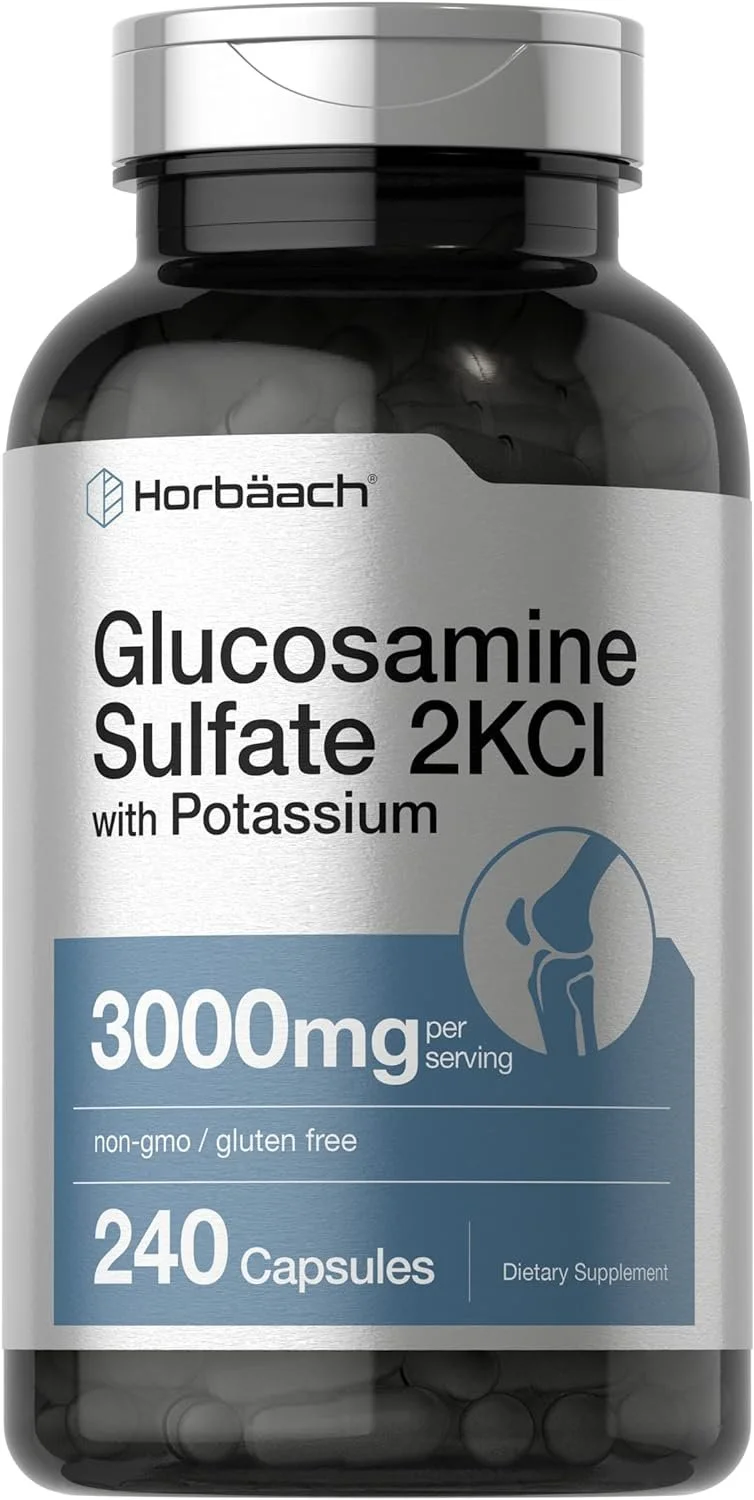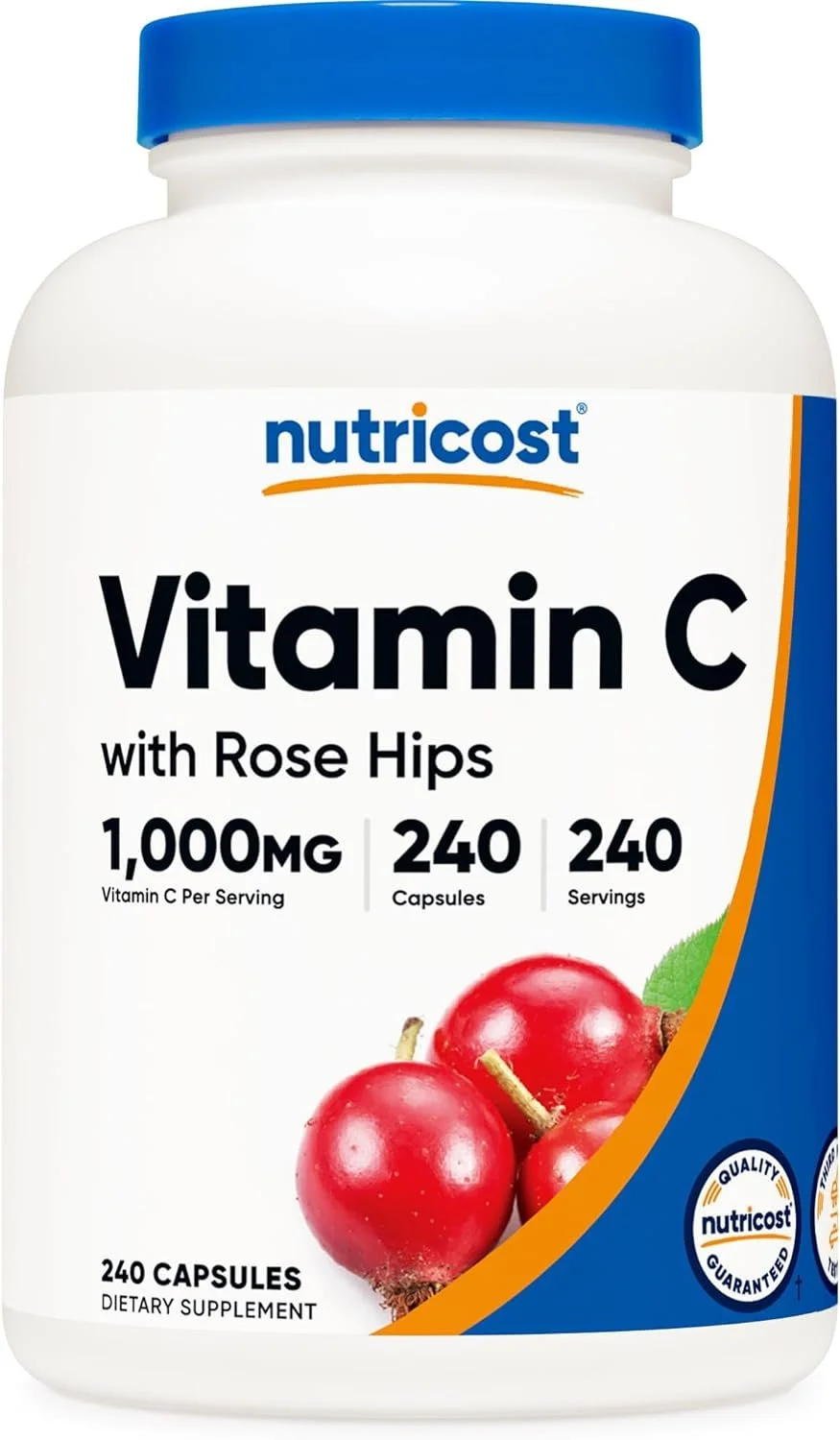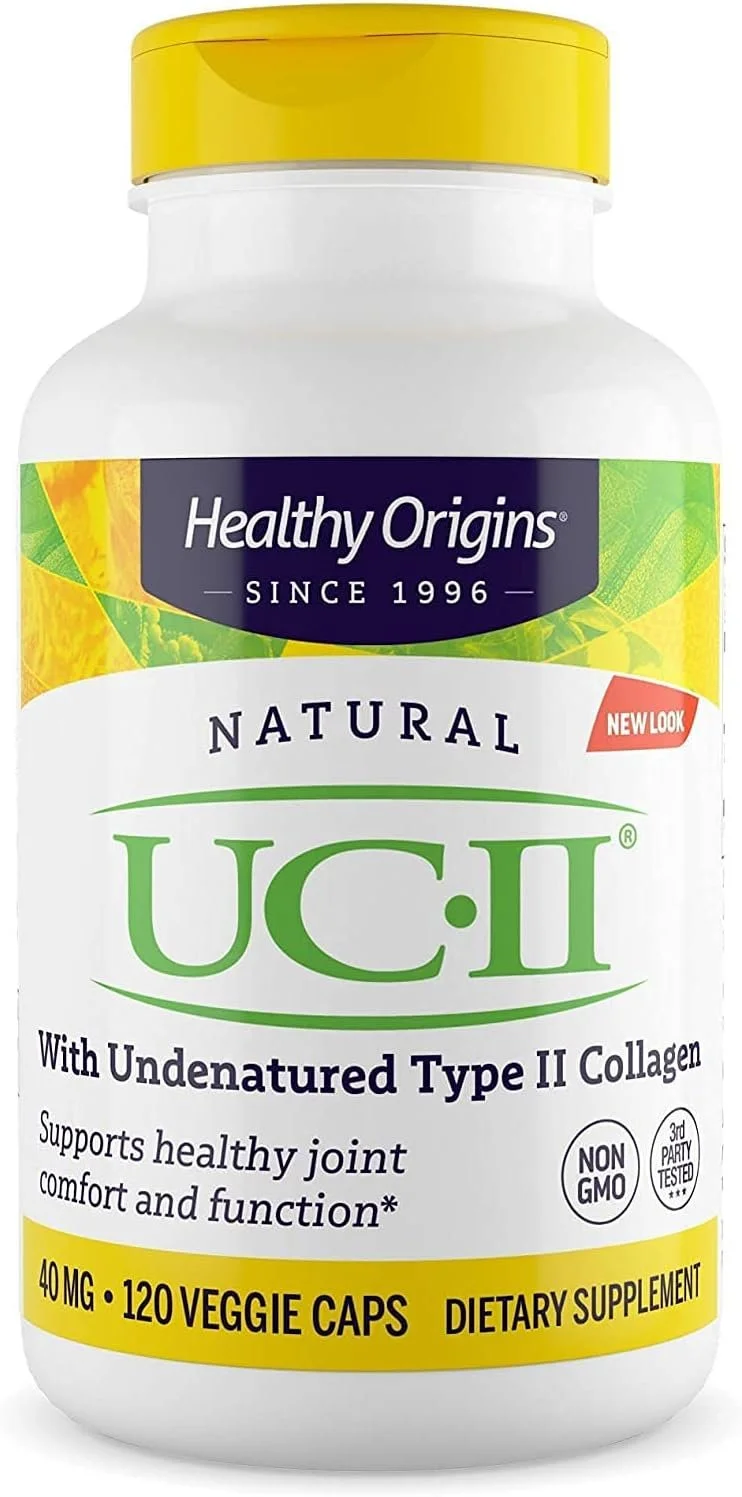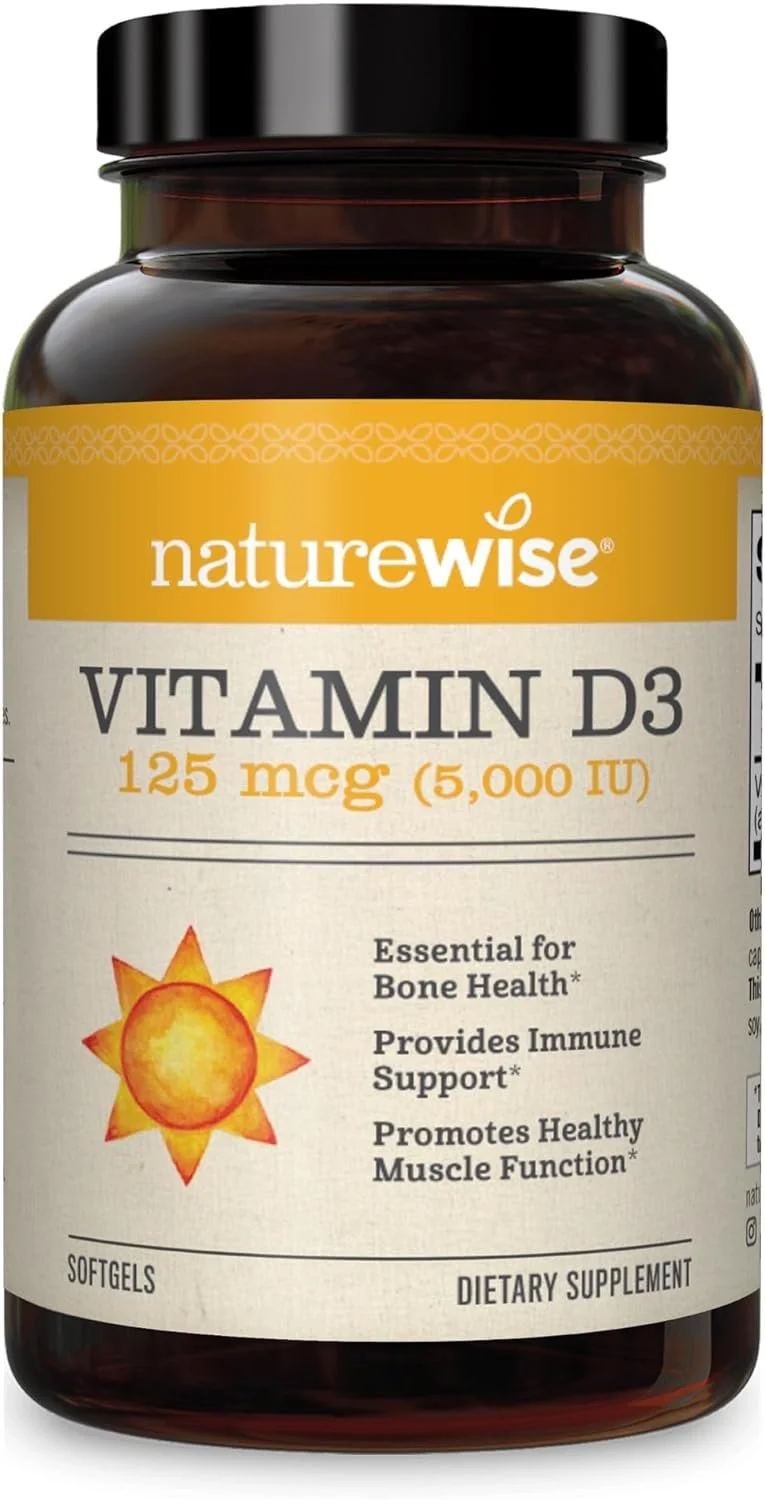4 Regenerative Knee Supplements
Best Supplements for Knee Pain
Breakthrough research reveals 4 evidence-based supplements to regenerate healthy knees - and you’ll be amazed at how inexpensive they are!
The 4 Power Players include:
A little-known nutrient that lubricates joints and is as effective as 1,200 mg of ibuprofen for relief from arthritis pain.
Another vitamin that enhances collagen formation. Without it, old scars can literally come undone and reopen.
The #1 raw material needed to regenerate cartilage that plummets with age. It’s especially life changing for menopausal women.
A powerful vitamin that, at optimal levels, speeds up healing significantly. Yet, 48% of the world population is deficient, causing injuries to linger for years.
Everything I’m going to share with you here is evidence based by numerous scientific studies and proven to have zero negative effects. References at bottom of page.
And you can get all these benefits for less than $1 a day!
Keep reading for the top 4 joint pain supplements I personally take every day. We’ll end the list with the biggest powerhouse of them all.
#4 - Glucosamine Sulfate
Recommended Dosage:
1,500 mg of Glucosamine Sulfate daily.
One study compared taking 1,500 mg glucosamine sulfate a day vs 1,200 mg ibuprofen a day, orally for 4 weeks. Glucosamine sulfate proved to be as effective as ibuprofen for reducing symptoms of knee osteoarthritis.
And in two studies that measured joint space narrowing of the knee, “Symptoms improved modestly with placebo use but as much as 20% to 25% with glucosamine sulfate use”.
This seems to be because glucosamine sulfate has mild anti- inflammatory properties and stimulates lubrication in your synovial joints.
Would you like to download this post as an ebook for future reference?
#3- Vitamin C
Recommended Dosage
2,000 - 4,000 mg Vitamin C daily for accelerated healing, reduced inflammation and pain relief.
1,000 - 2,000 mg daily for maintenance.
Ever have an old injury where you can feel the lumpy scar tissue? They feel kinda hard, and can be tender for years? Well, high doses of Vitamin C taken during the healing process has been shown to reduce those adhesions. Plus it increases collagen formation and tensile strength of tendons.
Fun fact! Did you know that scurvy, which is caused by a severe lack of Vitamin C, causes bruising, bleeding gums and old wounds to re-open because of the breakdown of the collagen matrix. Your skin, blood vessels and old scars literally fall apart without enough Vitamin C.
That’s because Vitamin C aids in the synthesis of collagen connective tissues, which is what your scars and the cartilage in your knee are made of.
In addition to helping you heal faster by aiding collagen synthesis, I was surprised to discover Vitamin C’s antioxidant properties also reduce osteoarthritis inflammation and pain.
#2 - Collagen
Recommended Dosage
40 milligrams of Undenatured Type 2 Collagen daily for joint cartilage.
4 teaspoons multi Collagen daily for skin, bones, tendons and ligaments.
Collagen is the main structural protein that makes up your body. It gives structure and keeps you from being a bag of bones.
Think of the collagen throughout your body as the fabric in your favorite pair of stretch jeans. They look so darn good on your ass and legs because of the shape they hold while allowing you to sit, squat and bend over to put your shoes on without asphyxiating.
With wear and washing, you lose fibers in your jeans (just look at your dryer lint trap). They eventually get thin in spots, breakdown and tear. This happens in your body too. But unlike your favorite pair of worn out jeans, your body’s collagen structure regenerates and heals on its own.
Unfortunately, this process slows down after age 30 because you don’t produce as much collagen on your own. This is why wrinkles become more pronounced in your 30’s. In your 40’s elasticity declines and you’ll begin seeing that crepe-like look in the skin on your arms and legs. After 50, you’ll notice that your skin is becoming thinner and tears more easily when taking off a bandaid. For women, menopause accelerates the whole process making osteoporosis a greater risk.
Your body has 28 different types of collagen that provide different levels of elasticity, durability, structure, etc...
Concerned about osteoporosis? Type 1 collagen provides the framework for calcium to bind to, creating strong bones.
Got a cut or tendon injury? Type 3 collagen is what your body will use to initially heal the injury and scar over.
Do you have osteoarthritis and thinning cartilage? Type 2 collagen will reduce inflammation and stimulate cartilage repair.
You’re aware that skin thins and tears more easily as we age? Well, that happens everywhere.
When I was in my mid-forties, my wife Martina was in her late 50’s and going through menopause. Our skin thinned, creped, and began tearing more easily. But worse than that, intercourse become painful for my wife.
Then we began taking a daily type 1 collagen supplement. Within 2 months the elasticity of our skin turned back a decade, nails became super strong, and Martina’s pain vanished!
#1 - Vitamin D
Recommended Dosage
Below 50 ng/mL - take 50,000 IUs Vitamin D3 weekly and get retested every 8 weeks. Once elevated, switch to maintenance.
Maintenance dose - 5,000 IUs daily.
Saving the biggest powerhouse for last, Vitamin D has a fascinating history in human evolution. It plays a huge role as a hormone that regulates sex drive, depression, bonding, growth...even healing. This all increases the likelihood that humans will survive cold winters.
In fall, the waning sun exposure tells us to shovel carbohydrates into our mouth and fatten up so we survive the long winter.
Then, as winter progresses, our sun exposure and vitamin D levels decline, bringing on seasonal depression and lethargy. This was a crucial survival mechanism before grocery stores and food delivery apps. Today we call it Seasonal Affective Disorder, but for over a million years this was how evolution got us to cuddle up, sleep all day and do as little as possible so we’d conserve calories and hopefully not starve to death.
From an injury and healing perspective, low Vitamin D signals to your body that it’s winter and food is scarce. Your body then conserves energy to prevent starvation, rather than expending energy to grow and heal optimally.
As spring arrives, our Vitamin D levels increase, along with sun exposure, until they spike in early and mid-summer. This signals a seasonal abundance of food and your body expends more energy in healing and growth.
This makes sense from an evolutionary perspective. But today, we have an overabundance of food combined with low Vitamin D levels year round. We spend most of our time indoors or covered with sunscreen and our bodies think it’s always winter causing injuries to linger for years.
Research shows vitamin D deficiency is strongly correlated with musculoskeletal weakness and pain. It greatly affects performance and functions as a modulator of up to 1000 genes involved in cellular growth, immune function and protein synthesis.
In an NFL study, players with musculoskeletal injury averaged Vitamin D levels under 20, substantially lower than non-injured peers. Peak neuromuscular performance is associated with Vitamin D levels of 50
You can easily get your Vitamin D levels tested by your doctor.
Side Note: Taking a D2 supplement is less than 1⁄3 effective as D3.
Let‘s Recap
Glucosamine Sulfate: As effective as ibuprofen for osteoarthritis pain, this supplement lubricates joints and has mild anti- inflammatory properties. 1,500mg daily costs a mere 16 cents!
Vitamin C: Vitamin C reduces scars and enhances collagen formation. 2,000-4,000mg daily costs only 12 cents!
Collagen: Collagen is the raw material needed to regenerate skin, bones, hair, nails and joints. You can get a powerful combination of 6 types for just 65 cents a day!
Vitamin D3: Low levels hinder injury recovery. Boost yours with 5,000 IUs daily for 3 cents!
References
Vitamin D3
Evolutionary Perspective in Rickets and Vitamin D
Sports Health Benefits of Vitamin D
Vitamin D2 is much less effective than vitamin D3 in humans
Vitamin D and Its Effects on Articular Cartilage and Osteoarthritis
Collagen
Cartilage Volume in Patients With Knee Osteoarthritis
Distributions of Types I, II and III Collagen by Region in the Human Supraspinatus Tendon
Vitamin C
Vitamin C as a therapeutic healing agent
Vitamin C in orthopedic practices: Current concepts, novel ideas, and future perspectives
Glucosamine Sulfate
A Review of Articular Cartilage Pathology and the Use of Glucosamine Sulfate
Glucosamine sulfate compared to ibuprofen in osteoarthritis of the knee
Proteoglycans in Articular Cartilage and Their Contribution to Chondral Injury and Repair Mechanisms




